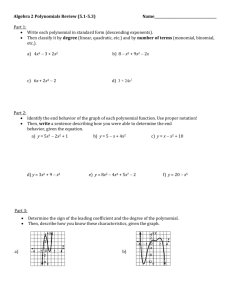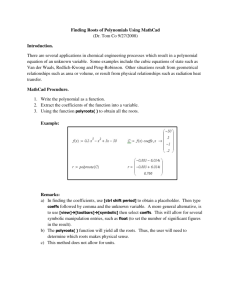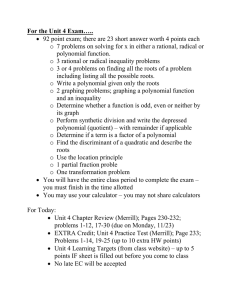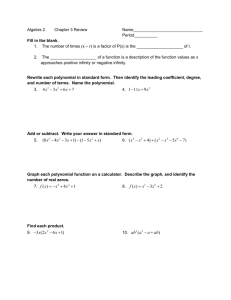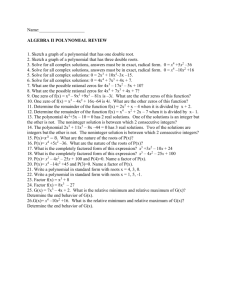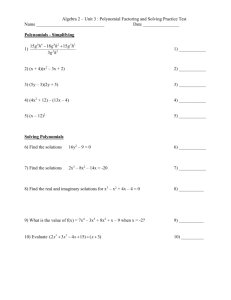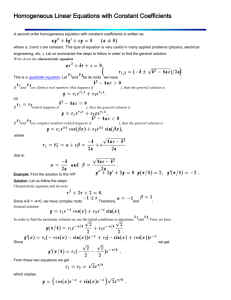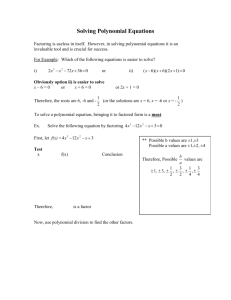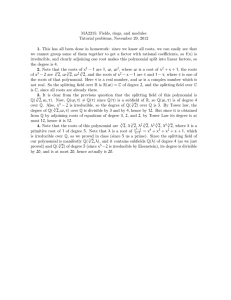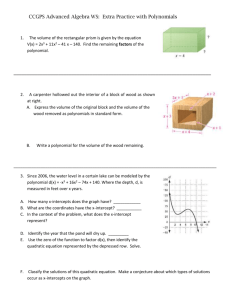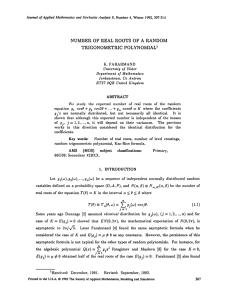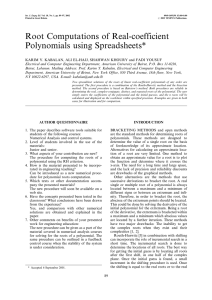MA2215: Fields, rings, and modules Tutorial problems, November 15, 2012
advertisement
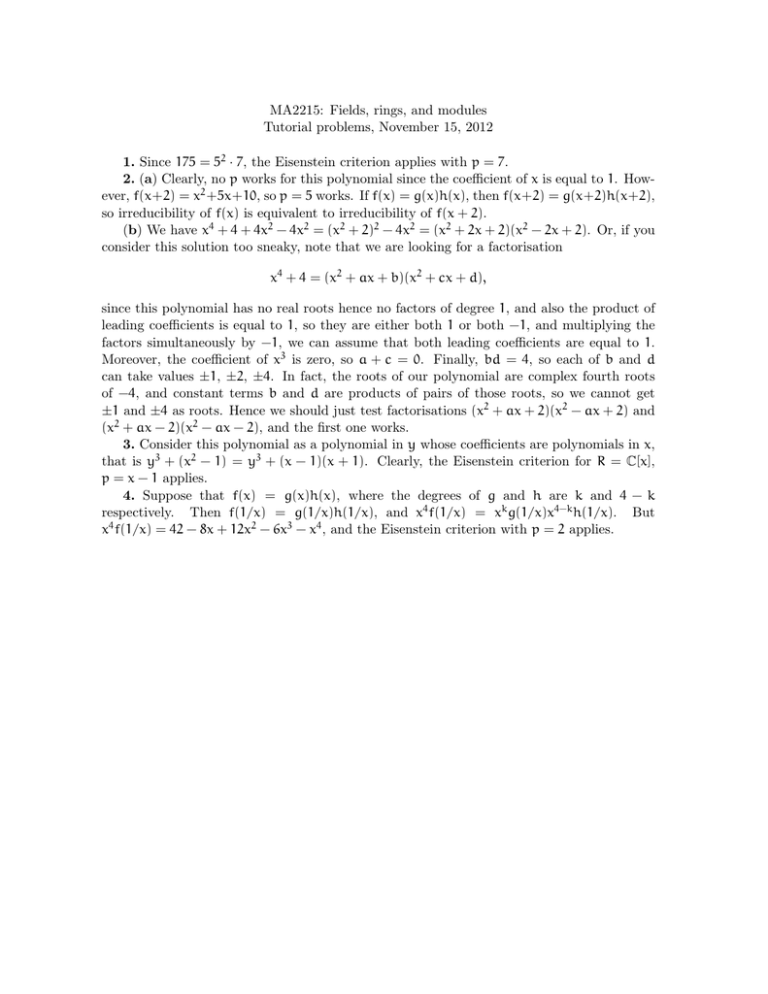
MA2215: Fields, rings, and modules Tutorial problems, November 15, 2012 1. Since 175 = 52 · 7, the Eisenstein criterion applies with p = 7. 2. (a) Clearly, no p works for this polynomial since the coefficient of x is equal to 1. However, f(x+2) = x2 +5x+10, so p = 5 works. If f(x) = g(x)h(x), then f(x+2) = g(x+2)h(x+2), so irreducibility of f(x) is equivalent to irreducibility of f(x + 2). (b) We have x4 + 4 + 4x2 − 4x2 = (x2 + 2)2 − 4x2 = (x2 + 2x + 2)(x2 − 2x + 2). Or, if you consider this solution too sneaky, note that we are looking for a factorisation x4 + 4 = (x2 + ax + b)(x2 + cx + d), since this polynomial has no real roots hence no factors of degree 1, and also the product of leading coefficients is equal to 1, so they are either both 1 or both −1, and multiplying the factors simultaneously by −1, we can assume that both leading coefficients are equal to 1. Moreover, the coefficient of x3 is zero, so a + c = 0. Finally, bd = 4, so each of b and d can take values ±1, ±2, ±4. In fact, the roots of our polynomial are complex fourth roots of −4, and constant terms b and d are products of pairs of those roots, so we cannot get ±1 and ±4 as roots. Hence we should just test factorisations (x2 + ax + 2)(x2 − ax + 2) and (x2 + ax − 2)(x2 − ax − 2), and the first one works. 3. Consider this polynomial as a polynomial in y whose coefficients are polynomials in x, that is y3 + (x2 − 1) = y3 + (x − 1)(x + 1). Clearly, the Eisenstein criterion for R = C[x], p = x − 1 applies. 4. Suppose that f(x) = g(x)h(x), where the degrees of g and h are k and 4 − k respectively. Then f(1/x) = g(1/x)h(1/x), and x4 f(1/x) = xk g(1/x)x4−k h(1/x). But x4 f(1/x) = 42 − 8x + 12x2 − 6x3 − x4 , and the Eisenstein criterion with p = 2 applies.
